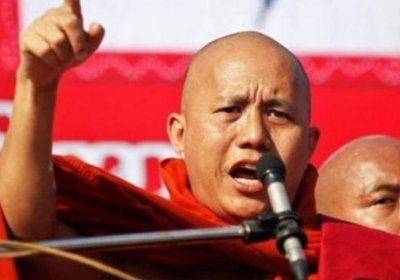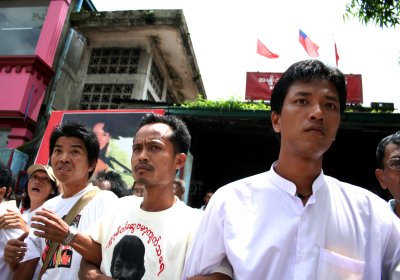More than 600,000 Rohingya have fled Myanmar (also known as Burma) to Bangladesh since August 25. With about 300,000 Rohingya refugees already in Bangladesh, tens of thousands in hiding in northern parts of Rakhine State and about 100,000 detained in Internal Displacement Camps, the United Nations Secretary General Antonio Guterres has described this mass exodus as “the world fastest-developing refugee emergency and a humanitarian and human rights nightmare.”
Aung San Suu Kyi
Aung San Suu Kyi's National League for Democracy (NLD) has won a crushing and historic victory in the November 8 election in Burma (also known as Myanmar).
Results were not final at the time of publication, but the NLD was on target to win more than 270 of the 330 elected seats (82%) in the People's Assembly, and more than 150 of the 168 elected seats (90%) in the House of Nationalities.
With elections due on November 8, a loud call for change in Myanmar (formerly Burma) can be heard in the streets.
All commentators predict victory for Aung San Suu Kyi's National League for Democracy (NLD) over the ruling Union Solidarity and Development Party (USDP). Several factors, however, indicate it will not be a landslide.
Nobel laureate Aung San Suu Kyi, known throughout the country simply as “the lady”, came to political prominence in 1988 when she returned to Myanmar to support her ailing mother and became embroiled in the students' struggle against the military regime.
Burma’s November 7 elections — held under an undemocratic constitution in an atmosphere of repression and with the result crudely rigged — have been overshadowed by the release from house arrest of opposition National League for Democracy (NLD) leader Aung San Suu Kyi on November 13.
Thousands of supporters lined the streets to her house and flocked to NLD offices to hear her speak.
Suu Kyi’s release has been compared to that of Nelson Mandela in 1990. However, unlike Mandela, Suu Kyi was not released from detention by a regime seeking negotiations.
“The whole process was a fake!”, said Khin Maung Swe, a 68-year-old leader of the National Democratic Force (NDF), a breakaway from the National League for Democracy (NLD) led by Aung San Suu Kyi.




